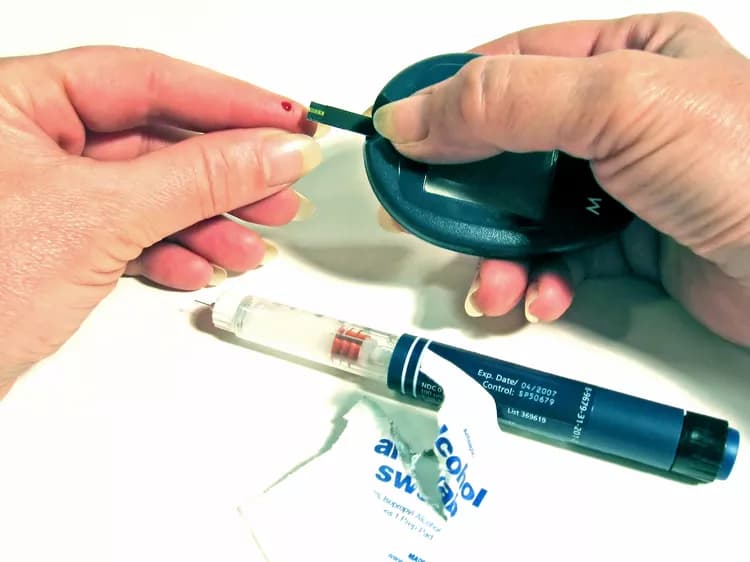
Biomarkers In The Blood Prove Strong Role Of Food For Type 2 Diabetes
A pioneering method, developed at Chalmers University of Technology, has demonstrated its potential in a large study, showing that metabolic fingerprints from blood samples could render important new knowledge on the connection between food and health. The study finds that diet is one of the strongest predictors of type 2 diabetes risk in older women.
Researchers from Chalmers University of Technology and Sahlgrenska Academy, University of Gothenburg, have found that several diet and nutrient biomarkers -- molecules that can be measured in blood that are related to diet -- are linked with both risk to have type 2 diabetes and future risk of developing diabetes.
The study, published in the leading nutrition research journal American Journal of Clinical Nutrition, was carried out on 600 women from Gothenburg where diagnosis of diabetes was made at the start of the study, at their age 64, and again after 5 ½ years.
The results underline that diet is an important factor when it comes to risk for developing type 2 diabetes, with fish, whole grains, vegetable oils and good vitamin E status found to be protective against type 2 diabetes, while red meat and saturated fat increased the risk for developing the disease.
"What is really important is that we were able to reach these conclusions without having any additional information on diet from the subjects," said lead author Doctor Otto Savolainen, who works at the Division of Food and Nutrition Science and the Chalmers Mass Spectrometry Infrastructure at Chalmers University of Technology.
The blood samples were analysed at Chalmers, where a unique metabolic fingerprint, including many different diet biomarkers, could be linked to each woman at the specific time the sample was taken. Using this method it was possible for the first time to objectively determine the impact of key dietary components on future type 2 diabetes risk, as well as to find differences in dietary patterns between women with and without type 2 diabetes.
"Collecting information about diet can be complicated and time consuming, and is always biased by what people remember and think they should report. Dietary biomarkers don't have this problem, and highlight that dietary recommendations to avoid red meat and saturated fat and increase intake of plant-based oils and whole grains do seem to hold true, at least in this group of women," says Associate Professor Alastair Ross, responsible senior researcher at Chalmers, at the Division of Food and Nutrition Science.
"The new method has allowed us to measure several markers of diet and nutrient status at the same time in a large number of people, which we believe is the first time this has been done," he says.
Although the role of diet is often discussed as a preventative measure for developing type 2 diabetes, this new research provides strong support for dietary guidelines, and underlines the importance of changing diet to improve health.
"New methods such as ours will help to improve how we measure diet and understand in more detail how dietary patterns relate to disease," says Alastair Ross.
Materials provided by Chalmers University of Technology. Note: Content may be edited for style and length.
Disclaimer: DoveMed is not responsible for the accuracy of the adapted version of news releases posted to DoveMed by contributing universities and institutions.
References:
Otto Savolainen, Mads Vendelbo Lind, Göran Bergström, Björn Fagerberg, Ann-Sofie Sandberg, Alastair Ross. (2017). Biomarkers of food intake and nutrient status are associated with glucose tolerance status and development of type 2 diabetes in older Swedish women. The American Journal of Clinical Nutrition. DOI: 10.3945/ajcn.117.152850
Related Articles
Test Your Knowledge
Asked by users
Related Centers
Related Specialties
Related Physicians
Related Procedures
Related Resources
Join DoveHubs
and connect with fellow professionals

0 Comments
Please log in to post a comment.